Better films every fortnight. Subscribe to Syrp Lab YouTube.
Plenty of kids have dreams of creating internet sensations with their friends. Not many actually do it, but Sabrina Cruz and her crew from Answer in Progress have turned their quest for knowledge into a fledgling media empire.
In this episode of Media Offline, Chase sat down with Sabrina to discuss taming the YouTube beast, the art of creative stealing and how to go from a maths degree to an audience of nearly a million.
Tell me about the beginnings of Answer in Progress?
Answer in Progress started from two main ideas. One is the three of us: Taha (Khan), Melissa (Fernandes) and I. We were students, we were about to graduate, we were really burned out. But we’d grown up being curious people who really enjoyed learning, and so we were chasing that feeling again. We were also video producers, we liked doing this kind of stuff. So we were like, what if we just try and chase that kind of curiosity and record the process? The way that we told people was like, ‘Imagine Casey Neistat and Vox Explainers, mixed together’ but it was all kind of worse.
Great, I love that. How did you get started on Youtube?
Yeah, so I was thirteen…and for the most part they were just rip-offs of other creators, and I just kept at it. It wasn’t for the algorithm, it wasn’t motivated by the idea of turning this into a profession, it was just what I saw people do, so I emulated that.
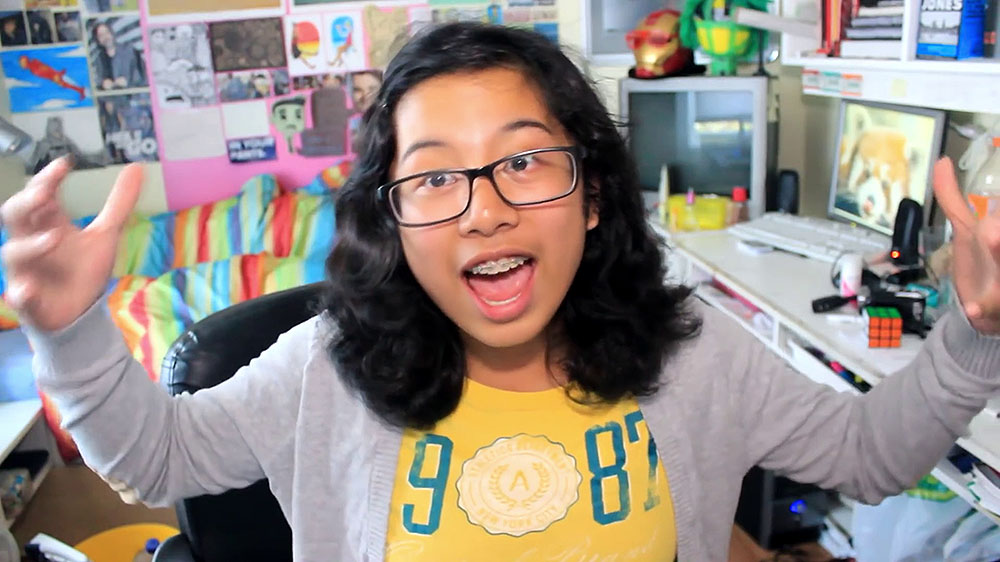

From those early days was the interest and passion in creating videos and getting better at that? Or was there a common theme that has drawn you through?
What I do in a lot of videos is share these things I learn, because I just find it interesting! But my actual technical passion was in animation and illustration.That is what I wanted to be growing up, but then I didn’t end up doing that because my parents were like, ‘Hey, maybe you should get a degree in something else’.
So you studied math and seemed to be on course for a career in consulting, but that love for Youtube never quite went away, did it?
I’m in my last year of university with a little bit of free time. I was like, you know what let’s take one last hurrah at YouTube, I’m going to produce a mini series of things - that would eventually become Answer In Progress. Dragged my friends in, too, it was all just going to be our little side project. As a by-product of this, we saw this Superpatron.org brand, launched by Jack Conte of Patreon, and it was like $50k to create something. It sounded too good to be true, and we applied. Melissa and I are working together one day on one of her videos, and I get a Slack message from Taha. He’s like, pick up your phone.
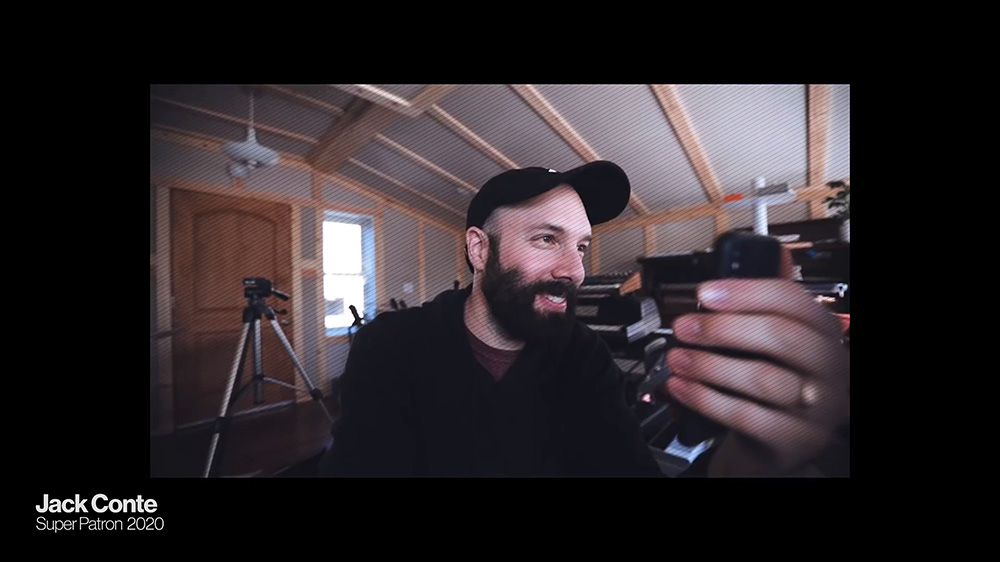

So you won the grant? What happened next?
It felt incredibly surreal to get this grant offer that I recognised immediately would change things. But now we have $50k US. We had all of these plans, but we were just like, let’s just get through exam season then let’s talk about videos. Then, in March of 2020…..
The pandemic happened…
A little something happened. Another thing that went a little bit differently is the job that I had accepted. I’m getting more and more into this idea of Answer in Progress videos. I’m like, these are really fun to make! I said no to the job. And so I settled into this reality of like, Answer in Progress is going to be a thing, let’s just stick to it and see what happens.
So when you switched over to this format of a group of creatives rather than just being yours, you say it clicked. Views started to go up, subscribers started to grow. What do you attribute that success to?
Two things. At the start of 2021, or the end of 2020 when we were like, ‘Everything’s gone wrong, nobody likes our videos!’, we were like, ‘Why?’. And I think what happened was we were trying so hard to emulate these serious creators that we lost what made us individuals, what made the three of us special. That we’re just three people, having fun. So we made this conscious decision that, whenever we’re at a crossroads, we choose whimsy. We do everything we can to make the video whimsical and fun and light and exploratory and curious. The other thing we realised was that titles and thumbnails are kind of king on YouTube, like if you want to attract a new audience, you need to get new people to click on your video.
So the way we did that, there were a couple of things. My favourite one was we just started making our thumbnails look suspiciously similar to other creators. It’s like the classic concept that exists in journalism and which, personally I believe, has ruined headlines nowadays. But it’s this curiosity. There is this title, I want to click the title. And adding a bit of a tease in the thumbnail design. My favourite one that I’ve pulled off was the one I made about the trolley problem because the title was just ‘I taught an AI to solve the trolley problem’. Which is not a solvable problem, it’s a philosophical debate, right? And then in the thumbnail, it was just the iconic trolley problem image so people are reinforcing this concept, and also I wrote in the little text, ‘It doesn’t like humans’. And I think that just summons up enough intrigue in the audience that they’re like, ‘Alright you got me, let’s click’.
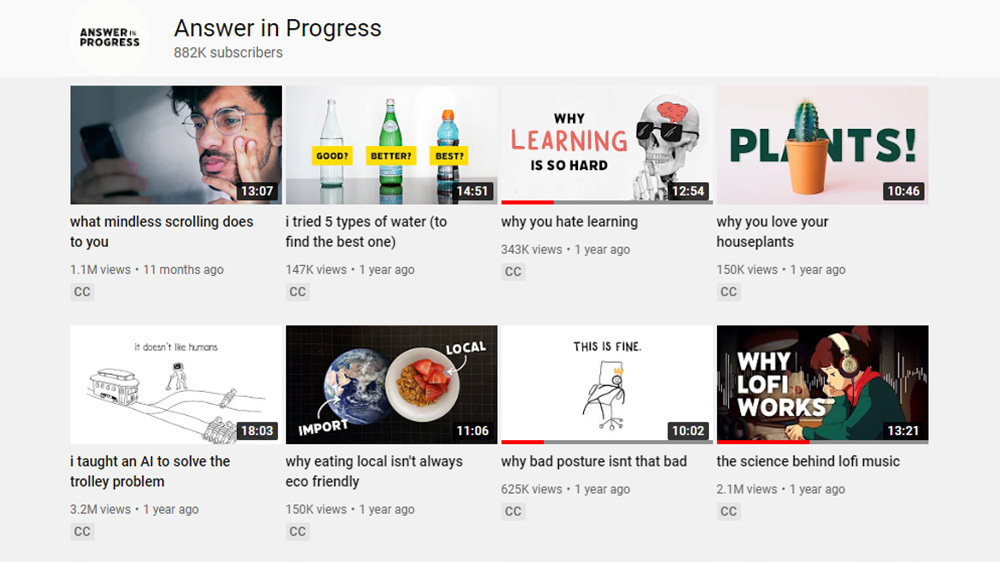

What percentage of being an online creator now is playing these algorithms and getting your work seen, versus being this passion for creating amazing work and people will come?
It needs to be both. You need to begin to separate the idea of your content and the way that it’s sold, the way that it’s packaged. And it is so much to ask of a creator, which is why it’s really good to work with other people and collaborate with people. Having that community there is so helpful, not only because you get to learn from one another, but because you get to stay excited about the thing that you actually love doing, which is the creation.
How do you balance the real commercial necessity of making things, with your life and actually enjoying what you’re creating?
We have the really good fortune at Answer in Progress of having an audience size that allows us to slow down. Very early for channels the goal is to get YouTube to recognise who to share your content with. So it needs a lot of data points and sometimes that is just like, ‘I need to produce numbers’. The second thing is that I don’t think that the way to grow a channel after a certain point is really about numbers. It’s more about producing videos that people will connect with - it’s translated into people engaging with your videos, people sharing your videos. And that is what the YouTube algorithm recognises as, oh, people like this stuff!
For people who are coming out of college now, how do you make that choice to turn your passion into your job?
Luckily we weren’t starting completely from scratch because we’d been making videos for so many years prior to Answer in Progress being made. But I think the biggest thing was we had a cut-off date. We always had an exit strategy. We set three goals and we said if we didn’t reach them by the end of the year, we needed to re-evaluate. And I think that having those goals made it seem a little less scary. It was like, I’m accepting these risks for a year, and I know that I can get through a year without losing the things that actually matter like housing, food, all of that stuff.
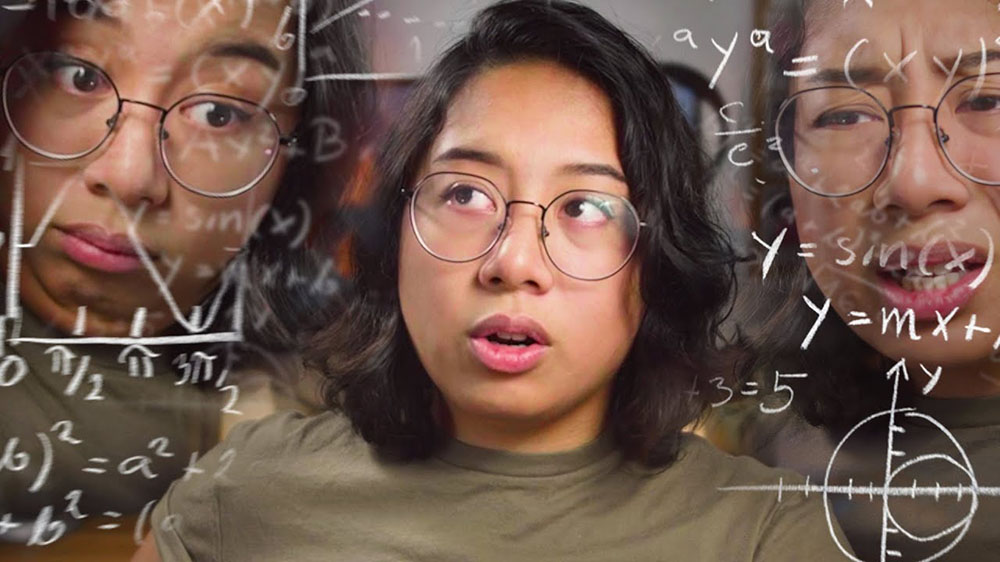

So, you went from a math degree to all of these things. How do you actually learn that, how do you develop those skill sets?
I think you should trust your taste. Your taste is always going to be greater than your abilities, but you can use that to your advantage. You can recognise, hey, why do I like this design? And how can I recreate that? There’s this whole concept of good artists steal, and I think that’s been oversimplified but it’s a great way to learn - to just try and copy what other people have done, see how you can do it, merge so many of these examples until you find something that you like and you find yourself with a new skill set. I really loved Vox videos, and I was like, I want to make a Vox animated explainer. So I just kept copying for a year, like, I have this idea - how would they do it? And I tried to keep putting myself in this mindset of what are the things that I like? Is it posterised time, is it a little bit of grunge loops? It has its pros and cons, the cons being that it’s an incredibly inefficient way to learn, but it’s also incredibly good at keeping you excited about learning.
In terms of animation, obviously that’s something you’re super passionate about. Have you been able to carry that as AIP has scaled up? Or is that something you’ve had to hand over the reins to other people?
For the first too long of a stretch at AIP, I was animating all of our videos on, like, three day turnaround timelines. It made me hate animation. I was so eager to throw it to anyone who would take it. And luckily we found really talented freelancers to work with who have been able to really translate our vision and make it really exciting. I still got to be in the weeds a little bit, but I also got more distance from the project so that when I saw that final cut I was just like, this is sick!
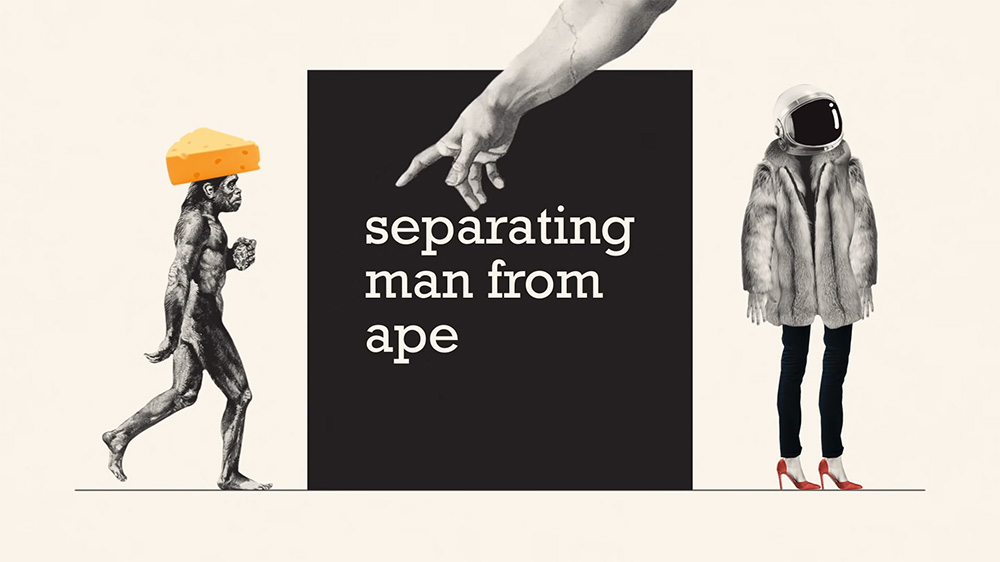

Has that changed the nature of or diminished your love for creating videos or has it just enabled you to move into this new phase of direction?
I do miss sitting down and just editing and animating. I think the bright side about owning and running the business is that in the future I can just be like, hey, I think I’m just going to take this one. It’s a balancing act of like, I really love this stuff, but also I need to do something else in order for this whole machine of a business to function.
What inspires us most here at Syrp Lab is how Sabrina and AIP mix the exploration and the industry, creating videos that not only reach a large engaged audience, but retain the fun and core joy of learning. We just keep coming back to one fundamental piece of wisdom from Sabrina, and that is that your creative idea matters, but how you package and sell that idea is absolutely essential to reach your audience online. And that’s something that we can all put into practice.
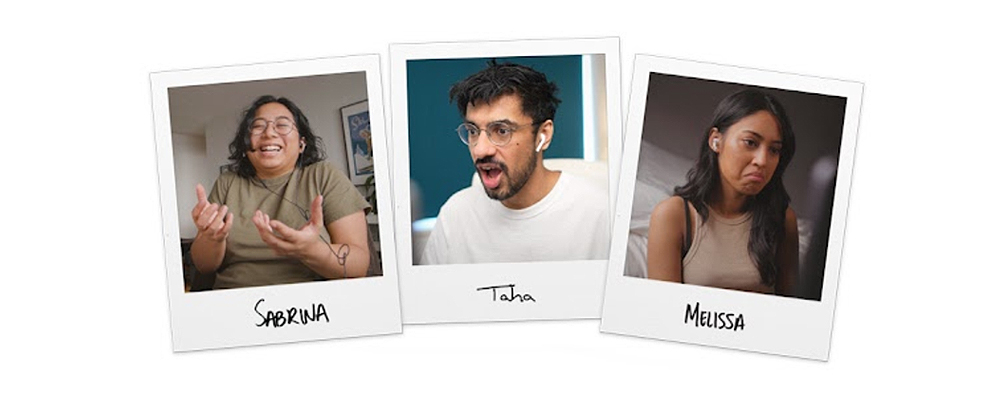

In the Media Offline series we’ve been diving deep with the creatives who inspire us, to help us level up and make better films. And to share this inspiration with you, of course. Stay tuned for more episodes.

